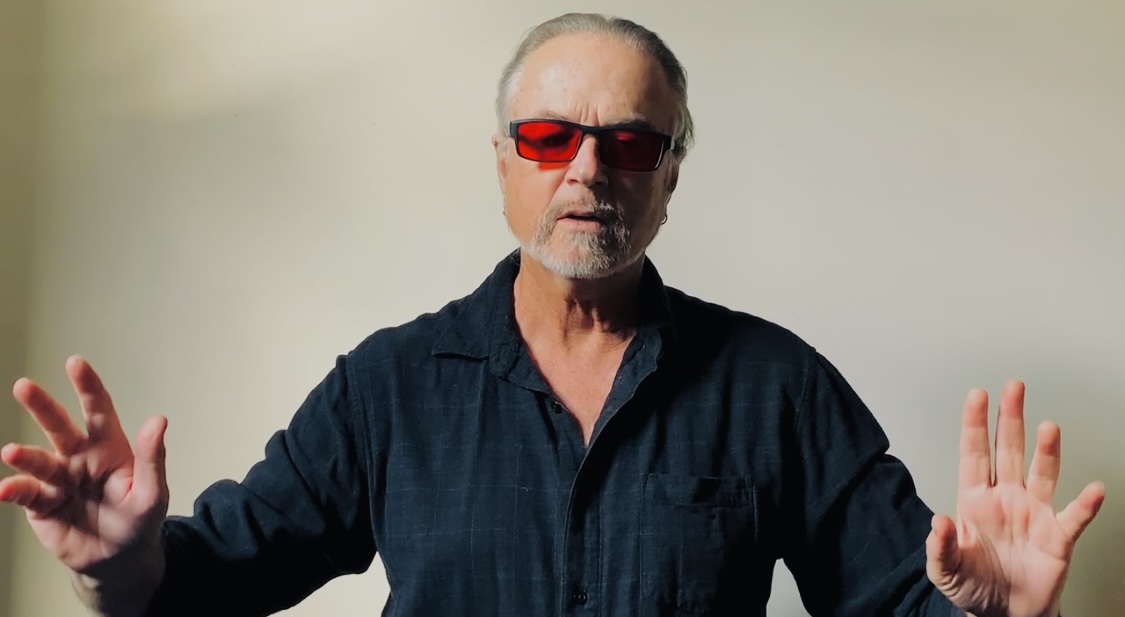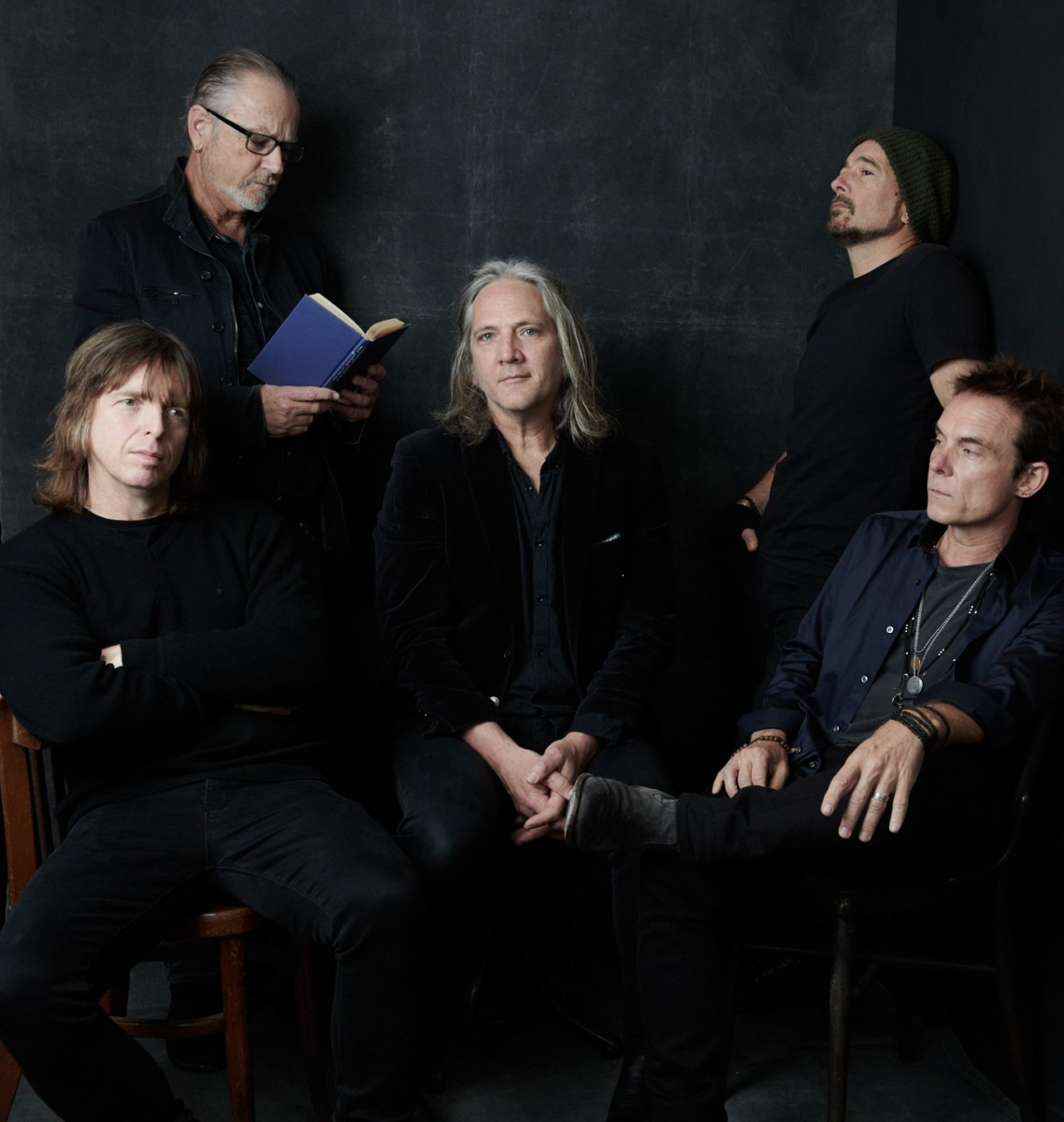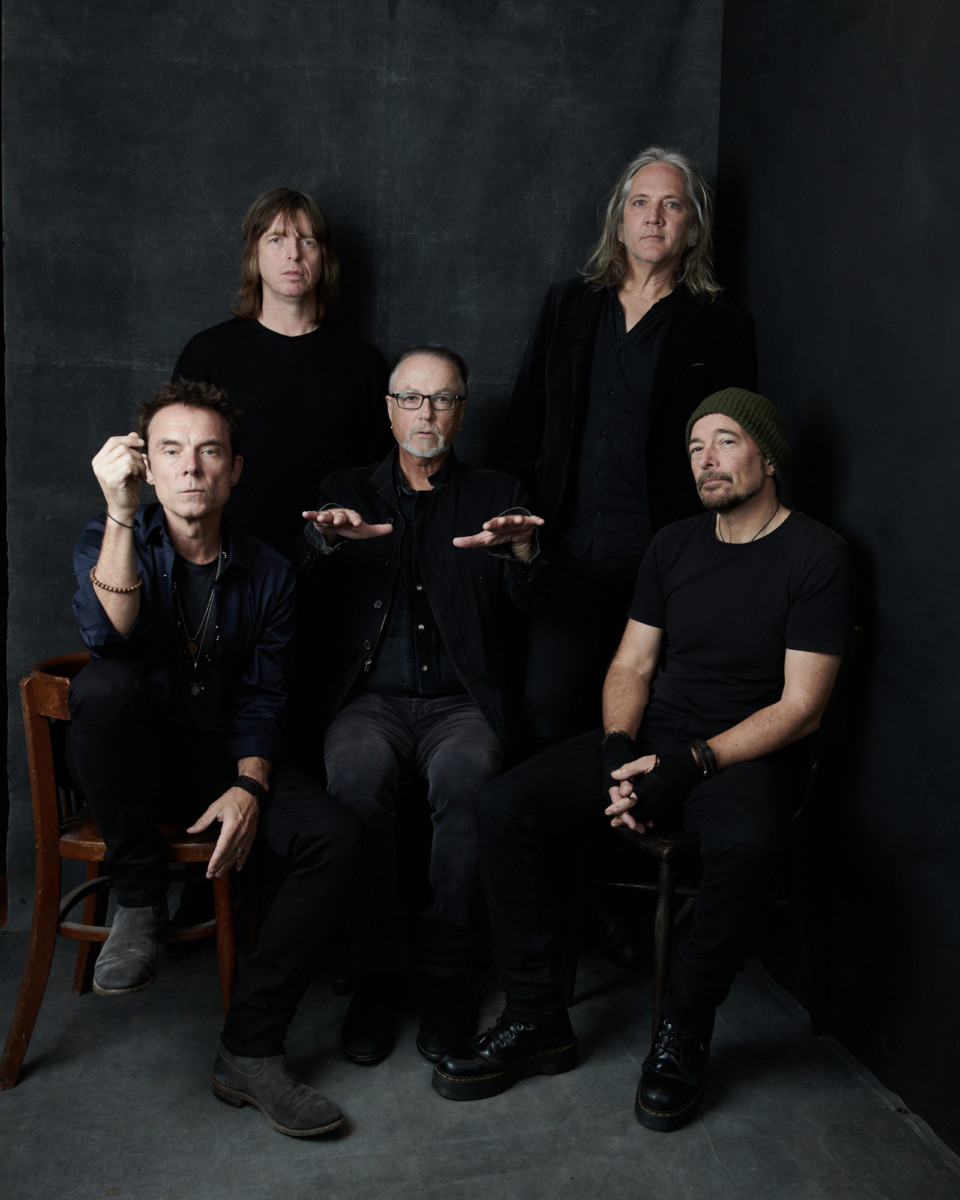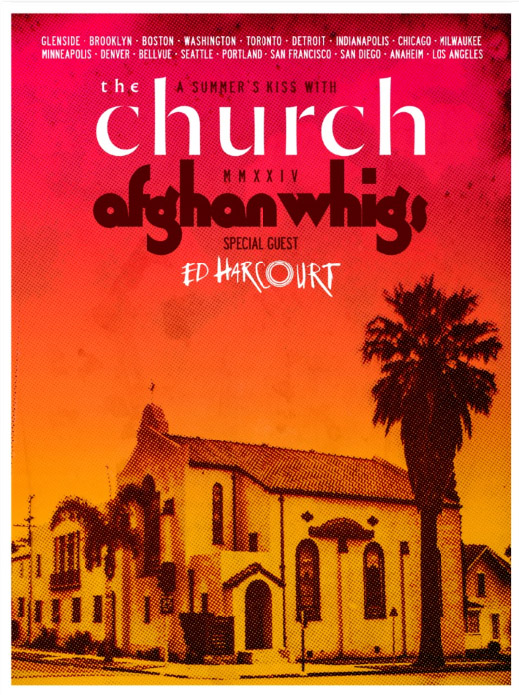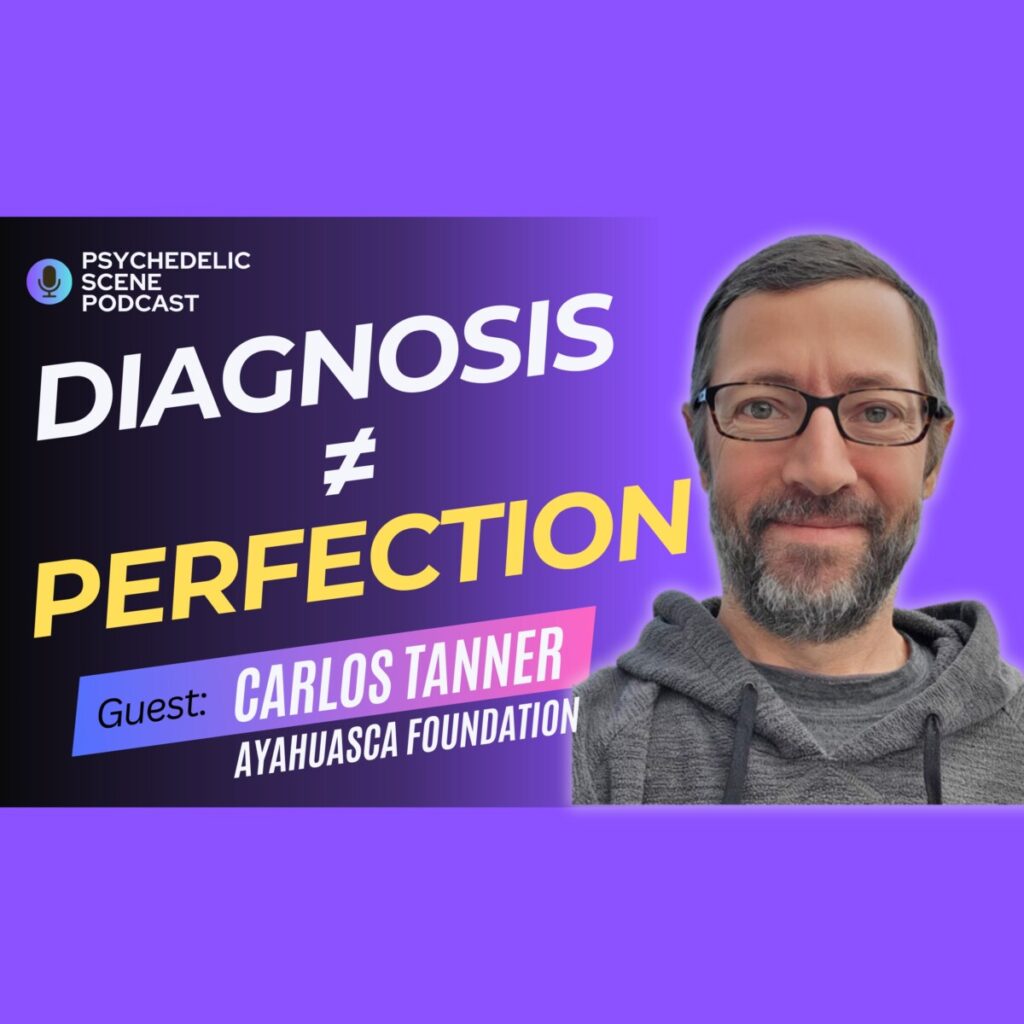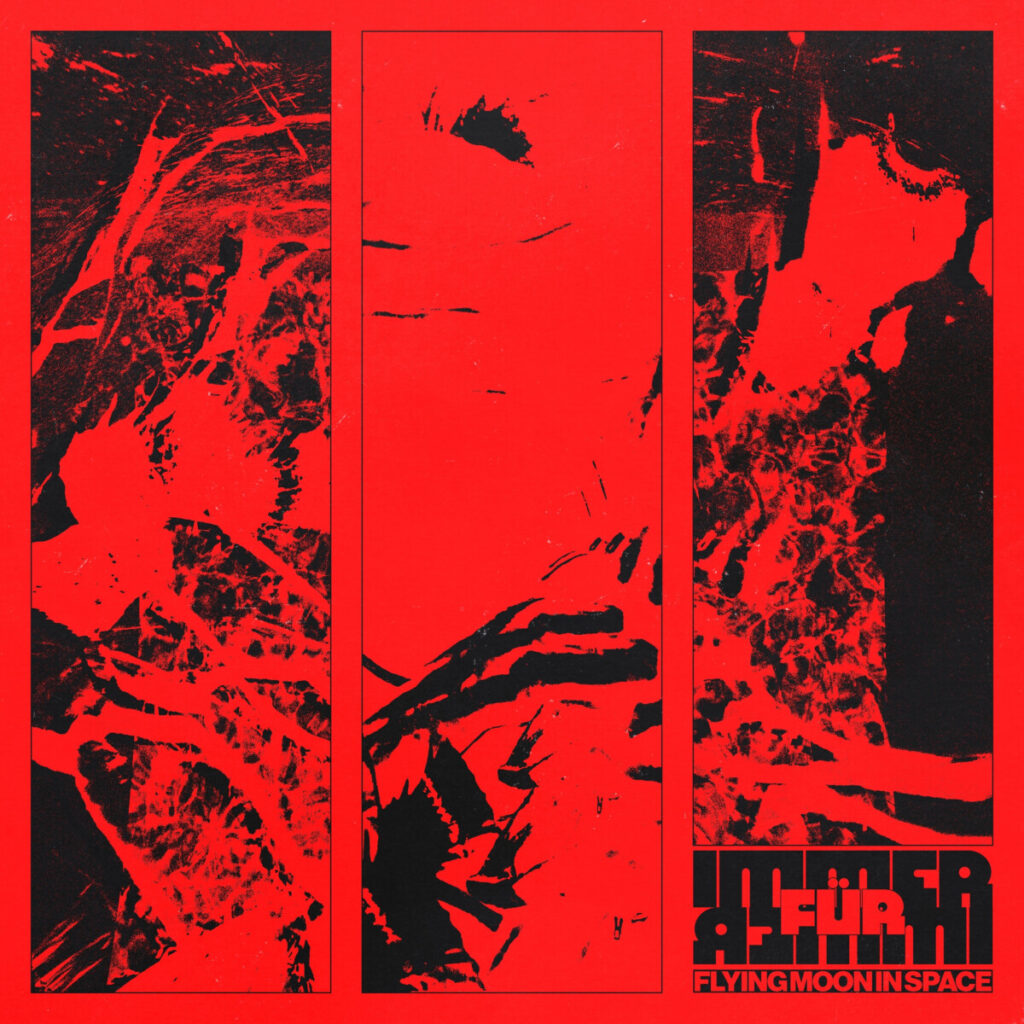New Interview with Steve Kilbey of The Church
New Interview with Steve Kilbey of The Church
Pete Bratach:
Hi, Steve. How are you?
Steve Kilbey:
Yeah, I’m good.
Bratach:
Cool. You can hear me okay?
Kilbey:
I can hear you, but I’m a little deaf from all this music. So if you see me going like that [leans into the camera], it’s just I’m listening harder.
Bratach:
Okay, fair enough. I’ll try to keep it loud because I’ve got a quiet voice, so I’ll try to keep it loud.
Kilbey:
Okay.
Bratach:
All right. Sorry. Anyway, so one thing I’ve noticed is The Church has been known for having the twin guitar attack sound for most of its career. You’ve got three full-time guitarists now. So are you writing parts for three guitars now when you write music? Are you writing differently than you used to?
Kilbey:
Everybody kind of writes their own guitar parts. I don’t sit down and write the song and say, “You do this and you do this and you do this.” I used to do that a long time ago, but I sort of, I stopped. So, yeah, no, they all just find their own parts. And they figure it out. They figure it out themselves.
Bratach:
That’s cool. Nice.
So I was watching your video when you were on KEXP, and that was a great little set. That was really nice. And you guys feel really tight. I saw you all at a winery at the end of your Starfish tour, at a winery in California, and you sound so much tighter now. I was wondering, is there a lot more creative energy coming out of the band now? Are you feeling more inspired to keep writing more than you used to?
Kilbey:
Well, we had some just dissenting people in the band, you know?, who didn’t really want to be there, even though they were good players. They weren’t really willing and there was a lot of friction and arguments and struggling. I found when we had people who really wanted to be there, it made all the difference. It’s not really much of a surprise.
It’s like if you have a football team full of the best players in the world, but they’re not cooperating, you’re going to get beaten by a team who’s not so good, who are synced up with each other. Unfortunately, that’s just the way it is.
I don’t think that people making movies always understand how powerful and how important the music is.
Now everybody seems to want to be in The Church and it makes things so much easier. All the subtext and all the implications and all the slights and things that happened over the years. They’re all gone now, luckily. So we can… this last little… these last few years, whatever they will be, hopefully, they’re going to be harmonious.
Bratach:
Nice. That’s good. I hope so, too. Speaking of things, I noticed that you had to cancel your Italian tour this month. Can you go into any details as to why?
Kilbey:
Yeah, I just had some health problems that I had to stay home and deal with. Is that enough?
Bratach:
Sure. Yeah. That’s your business. I was just curious. I’m sorry to hear that.
Kilbey:
No, that’s all right. I just couldn’t do that tour. It was going to be too much. It was a lot of long shows in a short time, a lot of driving around, and I just couldn’t do that. I had to stay here and look after this problem I’ve got.
Bratach:
Yeah. Well, hopefully you’re on the mend. I was just saying, hopefully you’re on the mend.
Kilbey:
Yeah, hopefully. Hopefully I am.
Bratach:
Okay. So this is the first time you’re touring with the Afghan Whigs. So how did this tour come about?
Kilbey:
Well, I met Greg at a gig a long time ago, maybe over 10 years ago now. We all got friendly we had a bit of a mutual admiration society. He actually came out to Australia and we wrote a few songs. I don’t know if that had anything to do with it, though. I think there’s always bands looking around to find a suitable band to do a double-header It doesn’t always happen. You can have random double headliners, and if it isn’t the right match, I think when we toured with the Psychedelic Furs, it was a good match, I think, not that we would really double headline with them. They were certainly the headliner, but I think it was a good match. I think people who liked the Furs liked us, and I think people who like what we’re doing like the Furs.
But that doesn’t come along all the time. I’m not sure, I think. I’ve got this new management company I’ve had for about a year now. I think they’re exploiting things and doing things a lot better. We haven’t had management for a long time. So these guys are starting to get more proactive and looking for things we can do and figuring it all out.
And of course, because Greg and I had a friendship, I guess that makes it easier. I hope it makes it easier to do this tour because it can get weird and wild touring with another band. Luckily, with the Furs, we never had any problems. They were just absolute sweethearts. Even if we were over time and stuff, they were very gracious. So hopefully, it’s going to…
Theoretically, it should be great for the punters to go and see two bands that they really like. A package It’s a rock and roll tradition, a package tour where you get food for the price of one. I think it’s good. We’re going to have to play a shorter set because we were playing up to almost three hours before, on our last American tour. But I’m cautiously optimistic this is going to be a good thing.
Bratach:
Cool. I’ve never seen the Afghan Whigs live, so I’ll be looking forward to it.
Kilbey:
Yeah, I haven’t seen them live either. Actually, that’s not true. They came to Australia and I jumped up on stage and sang a song with them, but I didn’t really take it all in. They were pretty good, though. I think everything Greg Dulli does is pretty good. Yeah, it should be really good. Should work out.
Bratach:
Nice. Is Tim going to be drumming for you? Did he get his visa issues resolved?
Kilbey:
Well, we definitely will have the other drummer, Nick. And Tim, depending on the size of the stage on a particular night, we’re going to see if we can get the two drummer thing happening. Hopefully, that’s going to be able to happen more often than not, because some stages, it may not be possible to have two drummers. But Nick will be playing with us every night, but I’m not sure if Tim will be.
I feel like I can make music whenever I want, and I can always get a song.
Bratach:
Okay. At least he’ll be on the tour, so that’s good.
Steve Kiley
Hopefully. Even at this late stage of the game, we’re still figuring everything out, how it’s all going to work. Yeah, hopefully he’s there.
Bratach:
Okay. Hope so.
So your music is very expansive and cinematic. I’m really surprised you haven’t done a movie soundtrack before. Have you ever been asked to do one or have you thought about doing one?
Kilbey:
I did a disastrous one a long time ago.
Bratach:
Is this Rare Earth?
Kilbey:
In Australia, a guy, the director, it was the first film he had ever directed, and he wanted me to do it and he liked what I was doing and the producer of the movie didn’t like anything I was doing. And, I gave up. The movie came out and there’s a bit of my music on there, and I was writing some really wonderful stuff, I thought. But every now and then the guy would come in and go, “Oh, yeah, we don’t need this now.”
It was a movie about these surfers that lived in Australia, a partially true story. One night they had a party and a girl lost her life. It was set in Australia and it was about Australia, and yet the producer was doing bizarre and random things. I had this wonderful piece of music for this scene, and he came along, “Are we replacing that with a song?” And I’m like, “What song?” And it was that song, Zombies. [sings Zombies]
I’m like, What the fuck is that got to do with the surfers living in the North Coast of New South Wales? It was just bizarre and random the way it was all working. And the director was a bit flummoxed. The producer was trying to… I don’t know what he thought he was doing. He was trying to have one of those movies that have big hit songs in it. With music for a film, you can have incidental music or music that’s composed for the film, or you can just chuck random songs in there.
I was watching this movie last night, The Martian, the one with Matt Damon, and I was really surprised. I was really surprised by some of the music that they had “Waterloo” by Abba. I thought it was for… I think the wrong… Let me say this. I don’t think that people making movies always understand how powerful and how important the music is, and they’ve got all kinds of agendas with what they think the music is going to do. One of them is that dream scenario where they have the hit single and the hit movie, and it’s all cross fertilizing itself. You know what I mean? The single is going on the charts and the movie… I think that’s great and that’s all very well. But you’ve got a guy on Mars struggling to survive and suddenly you’ve got [singing] “Waterloo, wouldn’t it be…”
I don’t know, it blows it up. Being a musician and being obsessed by music and being in this game for so long, I’m very, very picky and very serious about my music. I hate being subjected to music I don’t like. I hate seeing so many films and they’re using the wrong, in my opinion, they’re using the wrong music. Especially when they do this by chucking some old pop song from the past into a movie. I mean, if you’ve got a guy on Mars isolated and struggling, the music should reflect that. When you throw in “Waterloo” or things like that for no reason, I don’t think they understand how important it is.
And like you go in a restaurant, you go in a restaurant and they’ve got the wrong music on, it really pisses me off. I don’t think people realize how important music is, how important music is to a film to have the right music. I think they sometimes have the wrong agenda.
But that was a very long answer. Nobody seems to be rushing to me to ask me to make their movie soundtrack, but I would happily do that. I would happily do that with The Church. We’d love to do it, but I can’t see it ever happening. Now, I think I think the most we can hope for is one of our songs gets co-opted for some film. That’d be great. Like the thing that happened with Kate Bush last year
Bratach:
Yeah, with Stranger Things.
Kilbey:
Yeah, everybody wants that. Everybody in the world is hanging out for that thing to happen. Yeah, but no soundtracks on the horizon, as we speak right now.
Bratach:
Okay. You did have “Milky Way” in Donnie Darko about 20 years ago.
Kilbey:
Yeah. Yeah, “Milky Way” is in more films and TV shows than you can shake a stick at. I would say every two or three weeks, I sign a form saying, yes, you can use “Milky Way”.
You would have thought Peter Murphy and the Church on paper were similar, but I guess not.
You would think it’s a funny thing, the more it gets used, the more it gets used. You think it’d be the other way around that people go, “Oh don’t use that one. It’s been in everything else.” But it doesn’t seem to work like that.
I don’t know. It’s a funny thing in the film world. They all seem to do what the other filmmakers are doing. There’s not a hell of a lot of original thinking. So, yeah, I would never use “Milky Way” in a film because it’s been used in about 60 films and advertisements, but now they’re still queuing up to use it. So, yeah, that’s probably about the only… That’ll be the only thing you hear from me a film, I’m sure.
Bratach:
Okay. So what was the name of the surfer movie you mentioned before?
Kilbey:
It was called Blackrock.
Bratach:
Okay. Because when I was looking around, I saw that you and Martin Kennedy did some music for Rare Earth. But again, that was also just your own songs that they used, right? And he did some soundtrack work.
Kilbey:
Yeah. Although that was the track I was probably singing on, I didn’t really have much to do with that. He just would have gone, “I am submitting this song for this movie,” and they would have done it. I didn’t have much to do with that.
Bratach:
Okay, fair enough. So, going back to The Hypnogogue last year, with the Eros Zeta character, right? You said he had writer’s block. Is that because did you go through writer’s block yourself?
Kilbey:
No.
Bratach:
No? Okay.
Kilbey:
I’ve never had it. I refuse to have it. I refuse to believe it could affect me. And I feel like I can make music whenever I want, and I can always get a song. But I had to give him a reason why he wanted to use The Hypnogogue. So, yeah, he had it, but I don’t have it.
Hugh Stewart
Bratach:
Okay. That’s a gift. How hard was it to write the novel?
Kilbey:
Yeah, that was hard work because with a song, like when you’re writing a song or a piece of music, it’s a very short sustained amount of energy you need. I would say any song I write, or any song I’m involved in in writing, I would say the writing of it is over in fifteen minutes, that would be the very most. Band would jam or I would write something and we would have it within 15 minutes at the most. That’s all the sustained concentration you need. Then you need a different set of skills to record it.
But writing a book is not like that. It’s like 15 minutes doesn’t get you anywhere. I also had to force myself. My girlfriend here, she was like, “You’re going to go in there and you’re going to sit in front of your computer. I don’t care if you’re sitting there doing anything or not, but you’re going to sit there for a couple of hours or you’re not going to get your dinner.” It was sort of like that. It became more perspiration than inspiration. I would sit there sometimes going, “I don’t know what the fuck to write.” Some days it was easy, some days it was really hard.
I fought for hours with myself, and then when I looked down, I had three lines. I started thinking about books a lot. It seems to me there’s books that the writer starts the book and he knows where the book is going to go, and it goes from A to B to C to D, and it’s all planned out. There seems to be other books where they’re making them up as they go along. My book was a bit of both, I suppose. I knew what was going to happen in the end, but I didn’t know what was going to happen from day to day. Sometimes I just would sit there and if I could get in the right mood, I could feel where the story wanted to go. And it surprised me sometimes, the things that were happening. They weren’t what I planned, and yet as they started to happen in the book, I felt, I don’t know, I felt harnessed to something bigger than me that knew how the book should be and where everyone should be, how it was all going to work. So it was a bit like music, getting out of the way.
I’m sure you’ve heard this before, but there’s your logical mind that organizes everything. And then there’s an artist behind that. Sometimes the logical mind, the ego, shouts the artist down, “Don’t do that, don’t say that, don’t go there.” I think a lot of writing is getting the ego out of the way and trying to let the inner you do the thing. You need the ego to a certain extent to organize it and make sure it makes sense. But if you’re just sitting there and it’s all ego trying to write a book, that doesn’t work. You’ve got to get in touch with something else. I think that’s true with almost everything, all kinds of music and composition and poetry and whatever it is. I find I like it when I get on a roll and it all just comes. I don’t like I don’t like forcing things out. I like letting it all just roll.
Bratach:
Do you think you will write another novel ever?
Kilbey:
Look, I’ve already started on another one. I made great going for a while and I was really obsessed with it. Then I hit this wall, but I didn’t know what was going to happen, and I’m stuck there. I’m stuck on the wall, and as the days are going past now where I haven’t worked on it, I’m feeling more and more guilty and more hopeless that I’m ever going to get it finished because I can’t figure out what’s going to happen. I’m always working on it a bit in my head, figuring out how I’m going to get from one point to another, but it hasn’t become obvious yet.
But my next novel is nothing to do… this thing I’m working on now, it’s not sci-fi. It’s more about magic. It’s trying to go back to the books I used to love to read when I was a real small kid, and they were always about gnomes and elves and witches and strange people who lived in forests. I’m trying to update that idea because they’re the books I really used to like when all kinds of magical things would happen. I’m trying to write that in a slightly more sort of cynical and adult version.
But yeah, I’m very attracted to writing, but boy, it’s a lot hard work. The other thing is when you write a song, you can bring a friend in and sit down and say, “Please take four minutes out of your life to listen to my fucking song,” and you can play them the song, and four minutes later, they can go, “Yeah, that’s great,” or “I don’t know, I don’t think you really…” But with a book, it’s so hard to get to know what you’ve done. It’s so hard to get, “Hey, do you want to read my whole book? It’s 400 pages. Do you want to work your way through it and tell me what you think?” It’s much bigger and more serious.
And songs don’t have to make any sense at all. You don’t have to tie up any loose ends in a song. Songs are loose ends. Songs are just loose ends from the moment they start or they can be. From the moment they start to the moment they end, they can be just whatever you like. And there’s a song. But a book that is going to make sense.
Bratach:
The new album is called Eros Zeta and the Perfumed Guitars, which sounds a lot to me like Ziggy Stardust and the Spiders from Mars. So I’m wondering, is there a coincidence in terms of just the cadence and the words that you used, or is it just like an homage to Bowie or anything?
Kilbey:
I guess it’s incorporated in it. I guess it does have a Ziggy Stardust feeling. I mean, some of the singing on the record is pretty Ziggy Stardust. I guess it’s an homage on one level to that. The idea of an album about a guy, an errant wayward rock star.
Hugh Stewart
Taking a leaf out of Ziggy’s book, I don’t spell anything out either really. It’s like you get a vague… I mean, Ziggy’s a very vague concept record, and Bowie said that it’s very vague. Some of the songs don’t seem to… there’s no reason why they’re there at all. I’ve tried to let mine be open-ended. I mean, you can enjoy Ziggy Stardust without having to know anything about the story, whatever the story is, wherever you get the story from. I guess I’ve filled it in a little bit more than that with The Hypnogogue and Eros Zeta and now the novella. But even so, it’s still all very open-ended. To enjoy Eros Zeta, you don’t have to know anything about that. You can just, hopefully, just enjoy the songs. It’s one of those things you can get as deep into it as you like, or you can just sit on the surface and go, “Yeah, I like that tune.”
That’s the idea. I don’t want to make people study up on all this stuff if they don’t want to. But when I meet people and they’re really interested in it and they ask me questions about it, I really like to engage and I like that. But the actual records themselves, there’s some clues on there. There’s some photos and a few lines about things. After that, if you want to enjoy it, you’re on your own and you can make it anything want it to be.
Bratach:
Fair enough. I got to say the song “Pleasure” is my favorite song that you’ve written in decades. I can’t stop playing that song. It’s just so gorgeous.
Kilbey:
Wow! Yeah, a lot of people like that one. I’m glad. I don’t know what to say about it, though. Every now and then I hear a song that we’ve come up with and I go, “How the fuck?” I’m not even sure how we… I can’t even remember writing that. It was back in 2019. That one was slated to be on the original album. With Eros Zeta, there’s a bunch of new tracks, and there was also a bunch of tracks that were three or four tracks that were left over from the album. That was one that didn’t make it onto The Hypnogogue. But maybe it should have because a lot of people really like that one. I never foresaw that happening.
Bratach:
For me, it’s like towards the end when you have the break and then you just start repeating the chorus, you have this country-ish slide guitar.
Kilbey:
Yeah, it’s incongruent.
Bratach:
Yeah. You need to do that more in your music. You need more of the country effects. You should have more country effects in some of your songs because I think it’s an area you should explore more. I think it sounds really… it was just so different from what I heard from you before.
Kilbey:
Thank you. All right. Make a note, more country stuff.
Bratach:
Yeah, I think it’s really good.
Did you ever meet Bowie? Have you ever met Bowie?
Kilbey:
No. I haven’t met anybody. I never met any of the big famous rockers. I think Greg Dulli is the most famous rocker I’ve ever met. I met Iggy Pop once. He was an extraordinarily lovely laid back guy. I haven’t met many famous rockers. Richard Butler from the Furs. He was a really nice guy, too.
Bratach:
I remember reading, I was reading through your memoir the other day when you were talking about when you were playing with Peter Murphy. I was at that show at Radio City. You played Radio City Music Hall in New York. It was so funny because when you came on, all the goths left and all the Church people came in to watch you guys. And then when you guys went off, all the Church people left the crowd and all the goths came back in to watch Peter Murphy. It was just so funny, that concert.
Kilbey:
There you go. I guess that was someone would have said that’s a mismatch. If the people are leaving and coming back in and leaving again, I guess that’s the one you don’t want. Yeah, I don’t know. You would have thought Peter Murphy and the Church on paper were similar, but I guess not.
Bratach:
Especially Peter Murphy. He was so different from what Bauhaus did. I thought it would have been a lot more complementary, but it just wasn’t, I guess.
So I’m really happy you added a show in Sacramento because I moved here a couple of years ago. And so I can’t wait to see you guys here in my own hometown instead of having to go to San Francisco. So appreciate that.
Kilbey:
The capital. The capital of California. It’s a strange town. It’s a strange… I don’t know, a weird I don’t know. I always think of Sacramento. We played there in the early days and had some weird adventures. The world has changed a lot in 40 years, but I remember being there in 1984. This is weird. We were staying at a motel on the outskirts of town. We were only playing a tiny little gig. There was a guy opposite us in another building, and he was shooting. Every time we walked out the door, this guy was shooting these clay pigeons. He had a clay pigeon launcher, and he was shooting them at us. You’d open the door and stand there, and suddenly this clay object would smash against the wall where you were.
Bratach:
That’s crazy.
Kilbey:
That’s what I think of when someone goes to Sacramento, I think of the shock and horror as these clay pigeons were shattering on the wall outside the hotel room. Yeah, but strange. I know, it’s a strange place to me, but what do I know? I only see I get there in the afternoon, I play a gig, I get in the bus and drive away. I don’t know. I mean, I haven’t been to Sacramento, but I don’t know anything about it. I’m sure there’s some amazing amazing parts. The street you live in, I bet, is pretty good.
Bratach:
It’s not bad. I mean it’s different. We moved from San Francisco. I was in San Francisco for 20 years when we moved here. So it was a bit of a lifestyle change. And there’s so many people because of COVID, so many people from San Francisco moved to Sacramento. So we’re making it a better place.
Kilbey:
How far away is it?
Bratach:
An hour and a half to two hours, depending on traffic. Not too far.
Kilbey:
All right.
Bratach:
Cool. Well, hey, I appreciate all your time.
Kilbey:
Okay, mate. Nice to talk to you and see you soon.
Bratach:
Yeah, I’ll try to see you in July for the show. Okay. Thank you.
Kilbey:
Bye, mate.
Bratach:
Okay, bye.
Related: Eros Zeta and the Perfumed Guitars album review
Gallery
Recent Articles
Can Molly Mend Your Marriage?
•
February 16, 2026
Immer Für Immer by Flying Moon in Space–Album Review
•
February 13, 2026

Loading...
